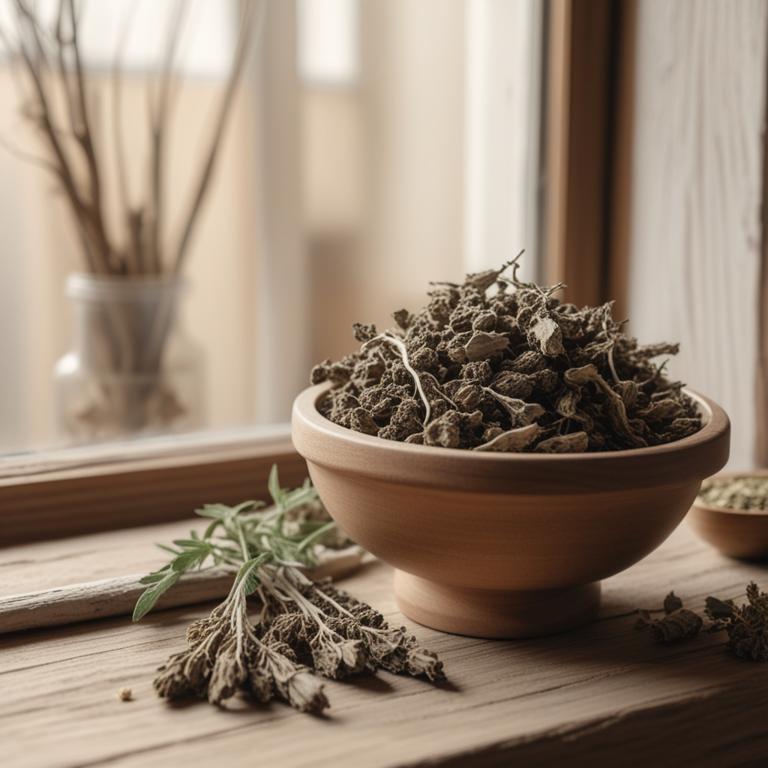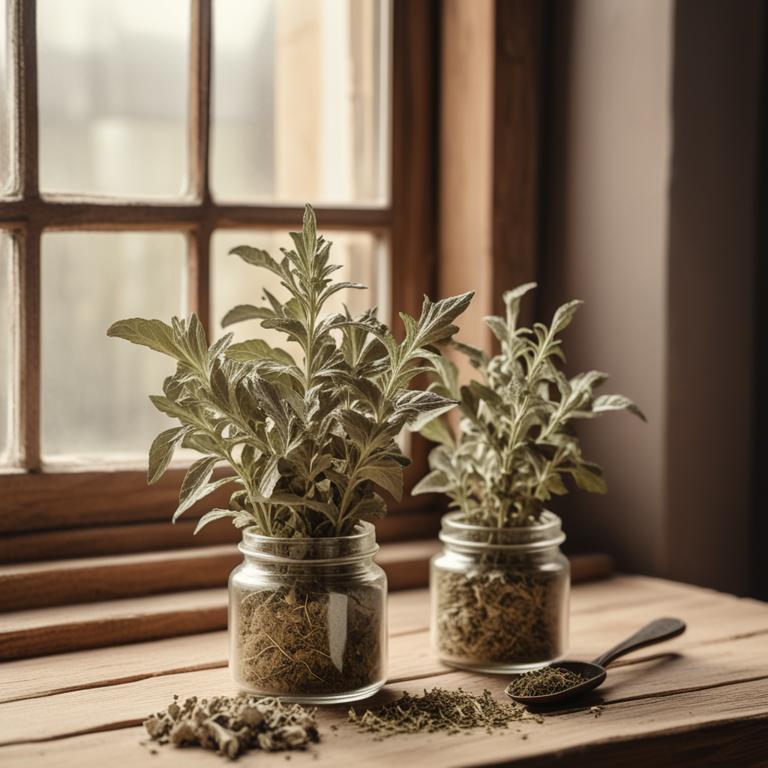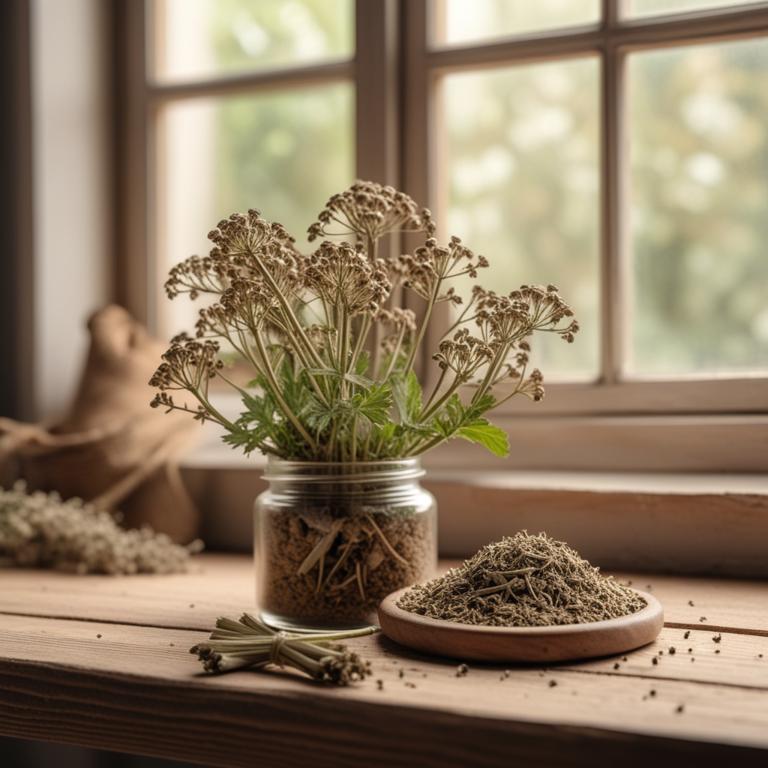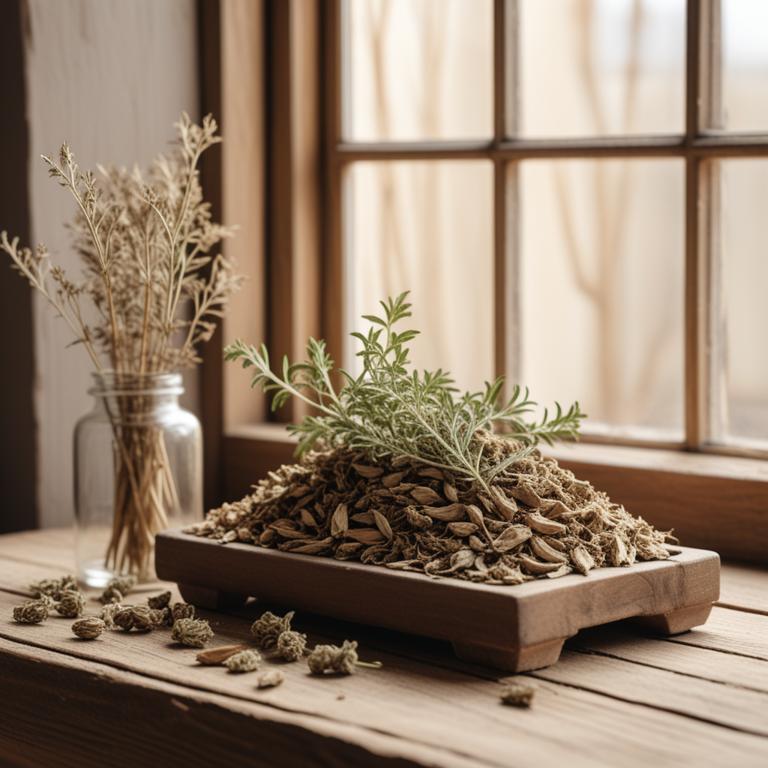Updated: Dec 1, 2024
Overcoming Low Blood Pressure: Causes, Herbal Remedies, and Effective Preparations
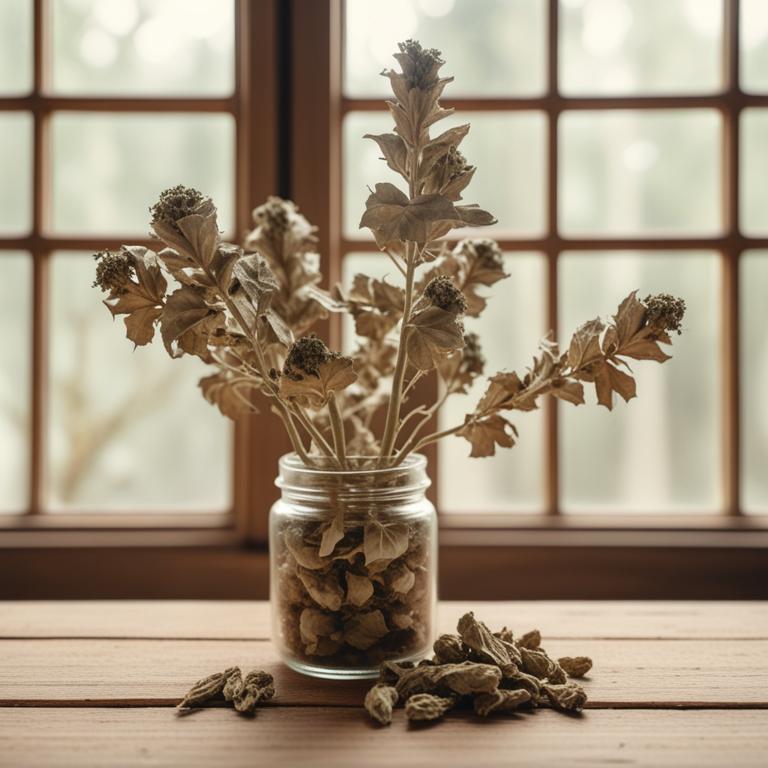
Low blood pressure, also known as hypotension, is a condition where the blood pressure in the arteries is lower than normal.
When this happens, the body's organs and tissues don't get enough oxygen and nutrients, leading to symptoms like dizziness, fatigue, and fainting. It can also cause headaches, nausea, and a rapid heartbeat. Low blood pressure can affect daily life, making it difficult to perform simple tasks and even affecting work or school. The causes of low blood pressure can be varied, including dehydration, medications, and underlying medical conditions like diabetes or anemia. It can also be caused by a lack of essential nutrients like iron or B12. Some people may experience low blood pressure due to certain medications, such as diuretics or beta blockers.
Herbal remedies can help to alleviate the symptoms of low blood pressure. Herbs like ginseng and ashwagandha are known for their adaptogenic properties, which help the body to adapt to stress and promote balance in the body's systems. These herbs can help to increase blood pressure and improve overall circulation. Other herbs like ginger and cayenne pepper have natural warming properties, which can help to stimulate blood flow and increase blood pressure. Herbal teas, supplements, and tonics can be used to treat low blood pressure. Ginseng tea, for example, can be made by steeping dried ginseng roots in hot water. Ashwagandha supplements can be taken in capsule form, and ginger tea can be made by steeping fresh ginger in hot water.
Cayenne pepper can be added to food or drinks to stimulate circulation and increase blood pressure.
Table of Contents
- What causes a drop in blood pressure to a low level?
- What advantages are there in using herbs for treating low blood pressure?
- Which medicinal herbs are commonly used to alleviate symptoms of low blood pressure?
- What are the most effective herbal preparations for regulating low blood pressure?
- What herbs should you steer clear of if you have low blood pressure?
- FAQ
What causes a drop in blood pressure to a low level?
The main causes of low blood pressure are several and can be related to various factors in the body.
Dehydration is one cause of low blood pressure. When the body loses too much water, it can cause a drop in blood pressure, as there's less fluid to pump through the blood vessels. Anemia is another cause, as a lack of red blood cells can make it harder for the heart to pump blood, leading to low blood pressure.
Diabetes can also cause low blood pressure, especially if the blood sugar levels are not well-managed. High levels of sugar in the blood can damage the blood vessels and make them less effective at carrying blood. Hypothyroidism, or an underactive thyroid gland, can also lead to low blood pressure, as the thyroid gland helps regulate the body's metabolism and heart rate. Some medications, such as diuretics, beta blockers, and certain antidepressants, can also cause low blood pressure as a side effect.
Lastly, heart failure can cause low blood pressure, as the heart is not pumping blood as effectively as it should, leading to a decrease in blood pressure.
What advantages are there in using herbs for treating low blood pressure?
Using herbs for low blood pressure can be very helpful.
One of the main benefits is that they can help increase blood flow and circulation, which is essential for delivering oxygen and nutrients to the body's cells. This can leave you feeling more energetic and less tired. Herbs can also help to strengthen the heart and improve its pumping ability, which is crucial for maintaining healthy blood pressure.
Additionally, they can help to reduce stress and anxiety, which are common causes of low blood pressure. By reducing stress, herbs can help to regulate blood pressure and prevent it from dropping too low. Some herbs can also help to improve digestion and nutrient absorption, which can contribute to overall health and well-being.
By addressing the underlying causes of low blood pressure, herbs can provide long-term relief and support the body's natural ability to regulate its blood pressure.
Which medicinal herbs are commonly used to alleviate symptoms of low blood pressure?

If you're experiencing low blood pressure, also known as hypotension, there are some herbs that may help.
Ginkgo biloba is one of them. It helps improve blood flow to the brain and other parts of the body, which can be beneficial for people with low blood pressure. It also helps to dilate blood vessels, allowing more blood to flow through them. Another herb that can help is Zingiber officinale, or ginger. It has natural warming properties that help increase circulation and blood flow. This can be especially helpful for people who experience cold hands and feet due to low blood pressure. Panax ginseng, also known as Asian ginseng, is another herb that may be beneficial.
It's believed to help increase blood flow and lower blood pressure by improving the function of the nervous system. It also has antioxidant properties that can help reduce inflammation and protect against cell damage. Cinnamomum verum, or Ceylon cinnamon, is another herb that may be helpful. It has natural warming properties that can help increase circulation and blood flow. It also has antioxidant properties that can help protect against cell damage and reduce inflammation. Lastly, there's Astragalus membranaceus, or astragalus. It's believed to help improve circulation and lower blood pressure by improving the function of the nervous system and increasing blood flow to the heart.
It also has antioxidant properties that can help reduce inflammation and protect against cell damage.
What are the most effective herbal preparations for regulating low blood pressure?
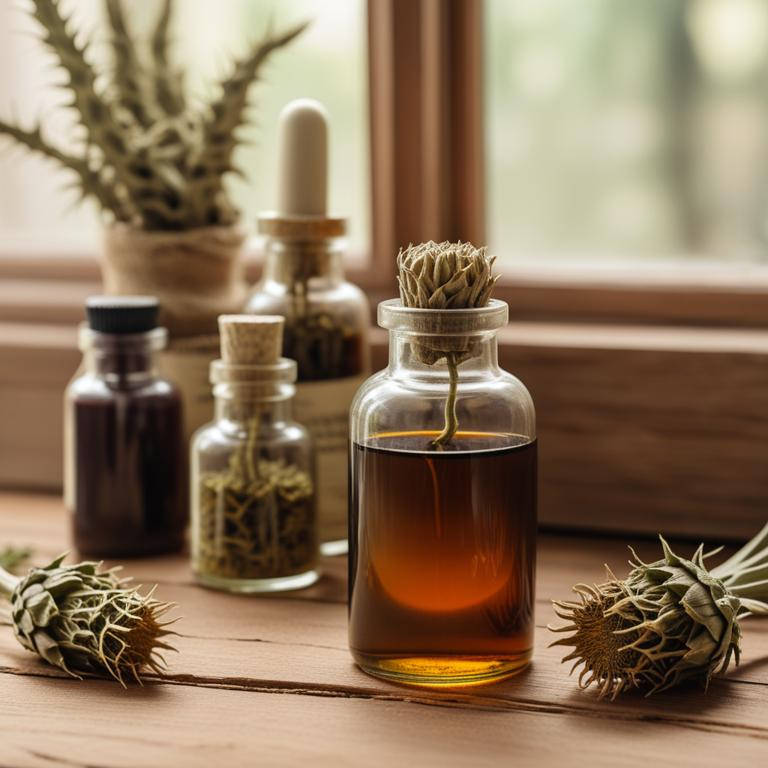
When it comes to managing low blood pressure, herbal preparations can be a great help.
One option is a capsule that contains a concentrated dose of a specific herb, like ginseng or ashwagandha. These herbs are known for their ability to increase circulation and help the body regulate its blood pressure. Another option is a decoction, which is a liquid preparation made by boiling herbs in water. Decoctions are particularly useful for herbs that are hard to digest, like roots and bark. For example, the root of the dandelion plant can be made into a decoction that helps the body retain fluids and increase blood pressure. Tinctures are also effective for low blood pressure. These are liquid preparations made by soaking herbs in a solvent, like ethanol. Tinctures are great for herbs that are too potent to take in large doses, like yarrow or peppermint.
They can be taken sublingually, or under the tongue, for quick absorption. Infusions are another type of herbal preparation that can be helpful for low blood pressure. These are liquid preparations made by steeping herbs in hot water, like a tea. Infusions are great for herbs that are easy to digest, like peppermint or chamomile. They can be taken hot or cold, depending on your preference. Finally, herbal powders can be a convenient way to get the benefits of herbs for low blood pressure. These are powdered versions of dried herbs that can be mixed with water or another liquid to make a drink. Powders are great for herbs that are hard to digest, like ginseng or ashwagandha.
They can be taken on the go, making them a great option for people with busy lives.
Additional Resources:
What herbs should you steer clear of if you have low blood pressure?
If you have low blood pressure, it's a good idea to steer clear of certain herbs that can bring your blood pressure down even further.
One such herb is Valeriana officinalis, also known as valerian root, which is often used to calm the nervous system and promote relaxation. While it may help you unwind, it can also slow down your heart rate and make your blood vessels dilate, leading to lower blood pressure. Another herb to be cautious of is Ephedra sinica, also known as ma huang, which is often used to boost energy and stimulate circulation. However, it can also increase heart rate and constrict blood vessels, which might not be ideal for people with low blood pressure. This herb can actually have the opposite effect on people with hypotension, making them feel even more lightheaded or dizzy. Polygala tenuifolia, also known as polygala, is another herb that should be used with caution if you have low blood pressure. It's often used to calm the mind and promote relaxation, but it can also slow down your heart rate and make your blood vessels dilate, leading to lower blood pressure.
This can be especially problematic for people who are already experiencing low blood pressure, as it can exacerbate the issue. Pausinystalia johimbe, also known as yohimbe, is a herb that can increase heart rate and constrict blood vessels, which might not be ideal for people with low blood pressure. While it can be used to boost energy and stimulate circulation, it can actually have the opposite effect on people with hypotension, making them feel even more lightheaded or dizzy. Schisandra chinensis, also known as schisandra, is an herb that's often used to promote relaxation and reduce stress. However, it can also slow down your heart rate and make your blood vessels dilate, leading to lower blood pressure. This can be especially problematic for people who are already experiencing low blood pressure, as it can exacerbate the issue. It's essential to note that herbs can interact with medications and have varying effects on different people.
If you have low blood pressure, it's always best to consult with a healthcare professional before using any herbal remedies.
FAQ
Are there any specific herbs that can prevent low blood pressure?
Ginger and peppermint are herbs that may help increase blood pressure.
Ginger, in particular, has been studied for its ability to improve circulation. Peppermint, on the other hand, can help relax blood vessels, allowing blood to flow more easily.
These herbs can be consumed as tea or added to food.
Is it safe to use herbal remedies for low blood pressure during pregnancy?
It's generally not recommended to use herbal remedies for low blood pressure during pregnancy.
Some herbs, like ginseng and guarana, can increase blood pressure, which can be a problem for pregnant women.
Others, like raspberry leaf, may not be studied enough to know their effects on pregnant women's blood pressure.
Are there any herbs that can reduce the frequency of low blood pressure?
Some herbs, like ashwagandha and ginseng, are believed to help stabilize blood pressure.
They may reduce the frequency of low blood pressure episodes by improving circulation and heart function. These herbs work by stimulating the body's natural response to maintain healthy blood pressure levels.
Their effectiveness can vary from person to person.
Related Articles
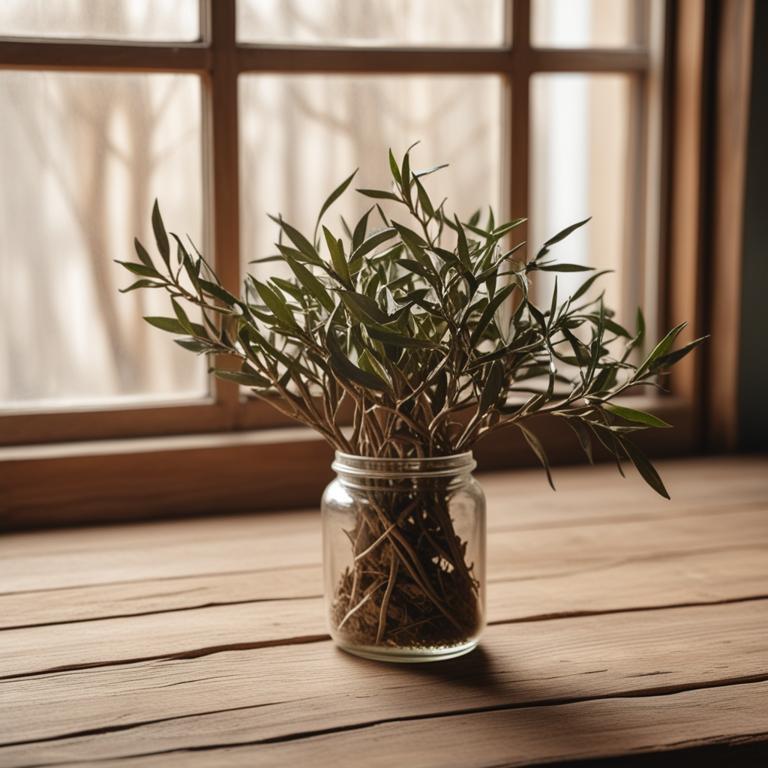
Varicose Veins: Causes, Medicinal Herbs, and Effective Herbal Preparations
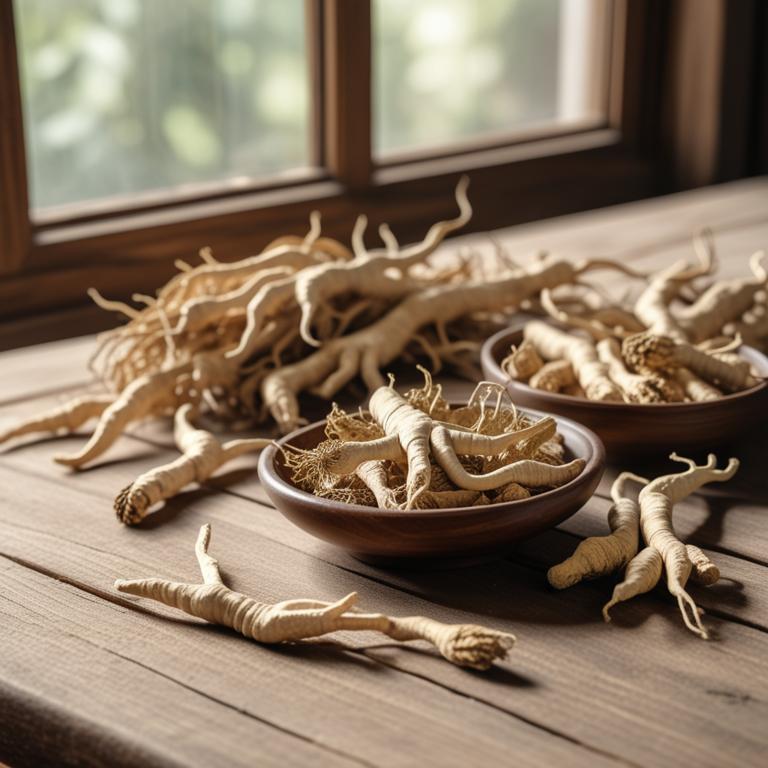
Overcoming Low Blood Pressure: Causes, Herbal Remedies, and Effective Preparations
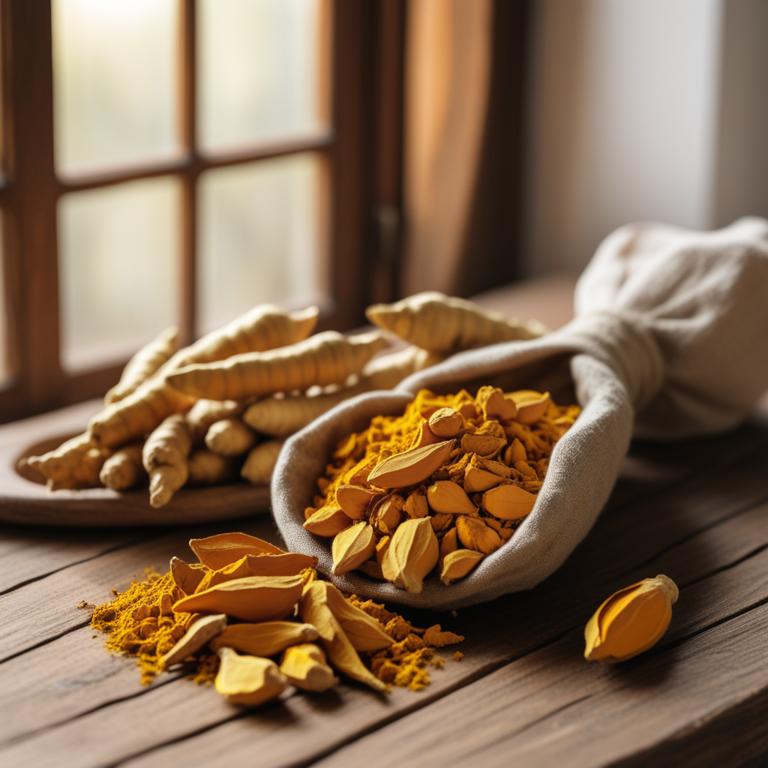
Arteriosclerosis: Unlocking Causes and Herbal Treatment Options
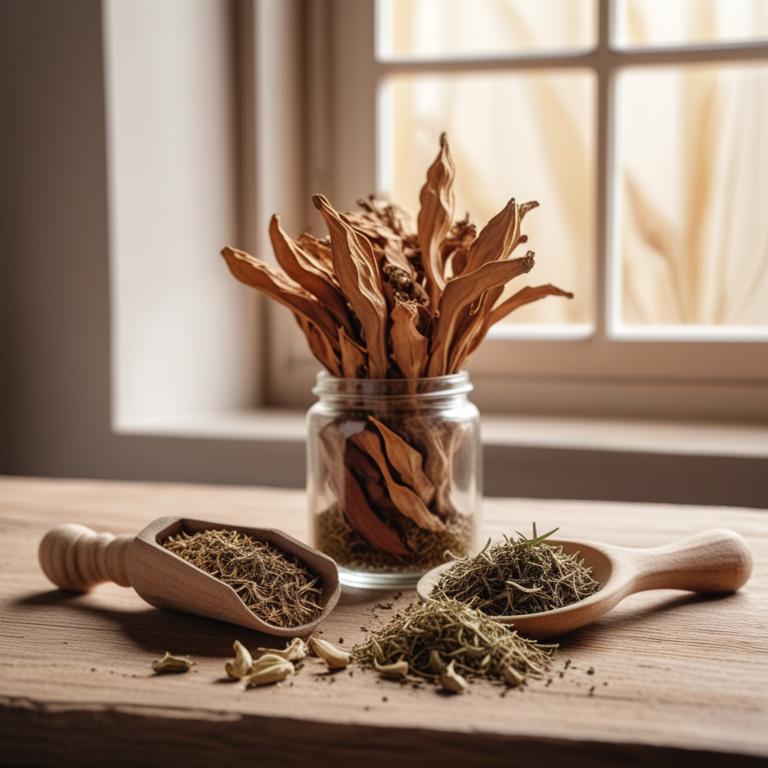
Heart Pain Causes and Medicinal Herbs for Pain Relief
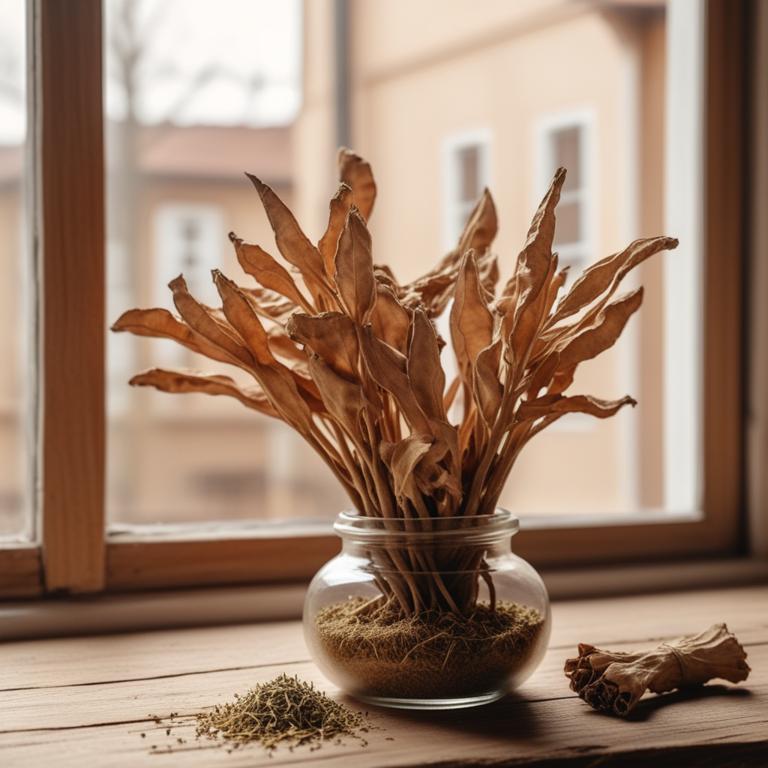
Angina and Herbal Medicine: Causes, Medicinal Herbs, and Preparations
